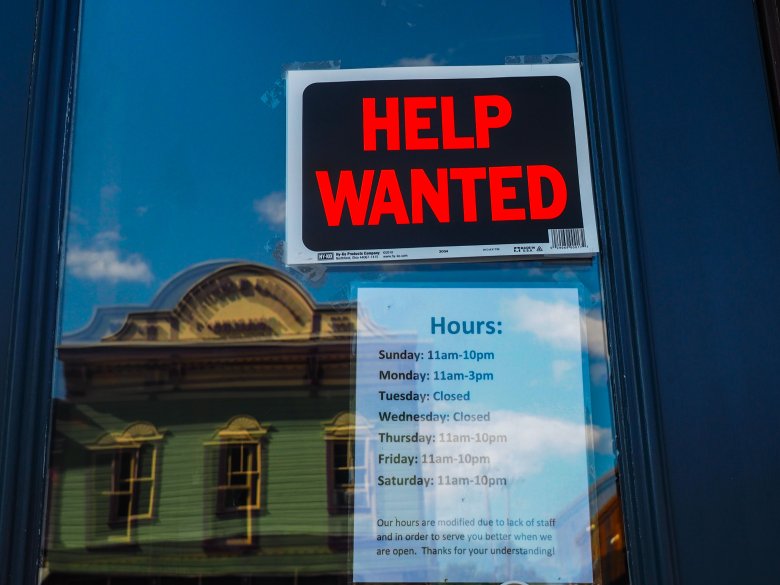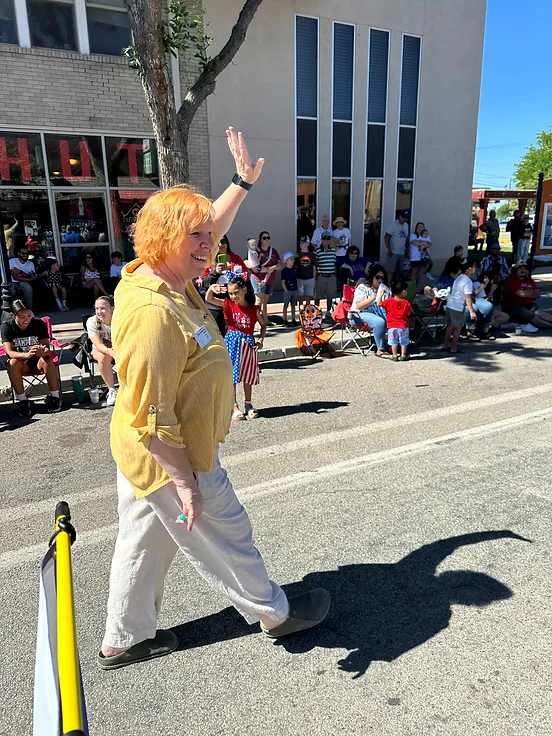
After Colorado’s November special session on property taxes wrapped up, Gov. Jared Polis knew the tax cuts the legislature passed wouldn’t be enough to satisfy many homeowners.
So the next week, he issued a challenge to local government officials across the state: cut taxes yourselves, by “as much as possible.”
“Hardworking people in Colorado cannot afford a 40% increase in their tax bills, or even a 20% increase,” Polis wrote in a letter to local taxing districts. “Wages have not gone up by anything close to this amount, and high inflation and interest rates are creating an affordability crisis for many Colorado families.”
Only a handful of them took his advice, a Colorado Sun analysis of the Department of Local Affairs annual property tax report found.
Overall, local government tax revenues climbed around 20% in the 2023 tax year — a $2.5 billion increase from 2022.
That’s far less than it could have been, with actual property values surging by more than 40%.
But most of the tax relief residents received was thanks to the assessment rate cuts mandated by the state legislature — not than anything local governments did on their own.
After Polis’ demand, the average mill levy across the state fell by 4.3% — a 3.5-mill cut on the average local tax rate of 85 mills.
In 19 counties, the average mill levies actually went up slightly, including Republican strongholds like Douglas and El Paso counties.
Only 16 counties cut tax rates by more than 5% — mostly in the mountains, where home values rose the fastest. In 29 others, residents saw a slight mill levy cut of less than 5%.
STORY: Colorado governor calls special session on property taxes to avoid ballot measure fight in November
Welcome to The Unaffiliated, the politics and policy newsletter from The Colorado Sun. Each week, we take you inside the political arena to deliver news and insights on Colorado politics. Keep reading for even more exclusive news.
If you’re reading this newsletter but not signed up for it, here’s how to get it sent directly to your email inbox. Please send feedback and tips to jesse@coloradosun.com.
LOCAL TAXES, A STATE HEADACHE
State lawmakers say they’re tired of the annual fight over property taxes, which are levied at the local level.
“It is striking me as increasingly odd that a voter in Douglas County is impacting property taxes in the San Luis Valley, or a voter in Denver is impacting property taxes on the Eastern Plains,” Rep. Mike Weissman, an Aurora Democrat, told The Sun in an interview.
But the local government response to the historic rise in property values suggests that while they often clamor for local control, their elected leaders don’t want to cut taxes any more than state lawmakers do.
When you look at individual taxing districts, a list of close to 4,800 local entities that includes counties, cities and special districts, over 1,200 of them actually raised mill levies in 2023, for taxes paid this year. (Notably, 140 of those were newly formed special districts collecting taxes for the first time.)
Around 1,000 districts cut their tax rates, some of them to zero after a debt issuance had been paid off.
Another 1,100 didn’t change their rates at all. (The remaining entities didn’t levy a property tax in 2024, according to state data.)
The behavior of local officials is a part of why those on both sides of the tax debate are coalescing around local caps on growth. Without them, history suggests local governments might prioritize the additional tax dollars over responding to homeowner complaints.
If local governments won’t cut taxes in response to future spikes in home values, it could send the political fight right back to the state Capitol — or the statewide ballot.
Weissman’s goal for the special session is to avoid another round of property tax “Groundhog Day.”
“My focus in session is going to be to try to win support for a constitutional reform so that we more squarely put control of local tax revenue back with local voters,” Weissman said.
THE NARRATIVE
How dire are the property tax ballot measures? Business groups don’t agree.

The Denver Metro Chamber of Commerce — whose president J.J. Ament may have been the first to publicly suggest a special session back on May 13 — was notably absent among the 45 political advocacy groups to sign a letter calling for a special session this week.
The letter didn’t just call for a special session to reduce taxes, it also unequivocally denounced the two tax cut measures headed to the November ballot, calling Initiatives 108 and 50 “a very significant and real threat to all communities in Colorado.”
In an interview this week with The Colorado Sun, Ament explained that the chamber’s board endorsed a special session, but hasn’t taken a formal position on the two ballot measures.
But from Ament’s perspective, the reasons for a special session haven’t changed since he first called for one in May. He says the cap in Senate Bill 233 didn’t go far enough to slow the growth in taxes, and too many businesses were left out of the commercial tax cut lawmakers approved.
“We’ve got a really simple problem here: Property taxes spiked up without Gallagher,” Ament said, referring to the tax-limiting constitutional amendment voters repealed in 2020. “How do we fix that? That’s the issue. (Senate Bill) 233 didn’t accomplish that.”
That’s a far different argument than the one contained in the letter, which was signed by business groups such as the Colorado Competitive Council, Club 20 and the Colorado Association of Home Builders, as well as left-leaning groups such as the Colorado Education Association and the Community Economic Defense Project. In fact, there’s no mention at all in the letter that further tax cuts are needed.
Ament’s comments — in contrast to the deep concerns that other business interests have with the ballot measures — represent yet another sign of something we’ve previously reported in The Unaffiliated: The business community and conservative political groups remain divided over Initiatives 108 and 50, with few major organizations willing to publicly join Colorado Concern on its ballot pursuits.
To Ament, the dire predictions of opponents of the measures go too far.
“(Initiatives) 108 and 50 are probably not as apocalyptic as folks made them sound initially,” he told The Sun. “What we’re really talking about here, no matter what happens, is a reduction in the future rate of growth, right? None of these things are cuts.”
That mirrors the message that initiative backers Colorado Concern and Advance Colorado have tried to make in their campaign pitches.
In the first year, local governments and school districts would lose out on an estimated $2.4 billion in property tax revenue if Initiative 108 passes. But many homeowners won’t actually see their tax bills decrease from one year to the next if their home values grow faster than the cut.
“Those aren’t real cuts, and they’re not real losses,” Ament said. “It’s just a reduction in the rate of growth.”
State lawmakers and government officials beg to differ, saying that if the state has to replace billions of dollars in lost property taxes in an already tight budget year, the consequences for public services would be widespread.
POLIS DISAPPOINTED?
We asked Gov. Jared Polis if he was disappointed that Colorado Concern was pushing ballot measures his administration considers so damaging to the state.
He didn’t answer directly.
“Well, I’m disappointed that we weren’t able to reach the agreement in (the regular) session,” Polis said. “I think had people worked together a little bit faster and better, this would have been relatively less controversial.”
Here’s more from our interview with him Thursday:
WHAT TO WATCH
COLORADO DEMOCRATIC PARTY
Ahead of its FEC filing, the Colorado Democratic Party reported this week that it raised $130,000 in July from more than 1,300 unique donors, 90% of whom were from Colorado.
The party didn’t provide information on how much it spent last month or how much it had in the bank headed into August. But party officials did disclose that they provided $10,000 in financial assistance to the state’s Democratic National Convention delegates to help offset their travel expenses.
YOU HEARD IT HERE
Walz made the remark Wednesday as he appeared at a fundraiser in Denver hosted by Tim Gill, the Democratic megadonor who made his fortune as a software entrepreneur.
Some other tidbits from the event that may have flown under the radar:
Missing from the event was U.S. Rep. Yadira Caraveo, a Thornton Democrat running in the toss-up 8th Congressional District. A spokesperson said she was attending a meeting about Colorado’s bird flu outbreak.
STORY: Tim Walz, speaking at $3 million Denver fundraiser, attacks Trump for false AI-crowd claims
Want to reach Colorado political influencers and support quality local journalism? The Sun can help get your message attention through a sponsorship of The Unaffiliated, the must-read politics and policy newsletter in Colorado. Contact Sylvia Harmon at underwriting@coloradosun.com for more information.
THE POLITICAL TICKER
GUNS
Rocky Mountain Gun Owners says it has dropped its lawsuit challenging Colorado’s 2013 law limiting firearm magazines to 15 rounds “due to unforeseen circumstances.” The National Association for Gun Rights, which is associated with RMGO, blamed the decision on the National Shooting Sports Foundation refusing “to allow its director of research to give an expert deposition regarding critical evidence.” RGMO and NAGR vowed to bring another challenge to the law.
ATTORNEY GENERAL
Colorado Attorney General Phil Weiser, a Democrat, sent out a campaign email this week touting his office’s work in the prosecution of former Mesa County Clerk Tina Peters. “I’m proud of our close work with (Mesa County District Attorney Dan) Rubinstein, a Republican, to ensure the law was enforced and the case was prosecuted with integrity, protecting our elections,” Weiser wrote. The missive comes as Weiser is rumored to be mulling a 2026 gubernatorial campaign in Colorado.
Peters, meanwhile, said on Steve Bannon’s “War Room” show that she plans to appeal her conviction.
READ MORE
🔑 = source has article meter or paywall
THIS WEEK’S PODCAST: A Colorado GOP embroiled in turmoil
ELECTION 2024
Colorado GOP sends out transphobic email attacking Democrat running to unseat Republican Sen. Cleave Simpson

The Colorado GOP on Thursday sent out a transphobic email attacking the Democratic opponent of state Sen. Cleave Simpson, R-Alamosa, who is running for reelection in the toss-up Senate District 6.
The email repeatedly used male pronouns to refer to Vivian Smotherman, a transgender Durango farmer and Navy veteran. It also included a screenshot of a social media post from the “Libs of TikTok” account saying Smotherman is “a man pretending to be a woman” and that “in Peru he would be considered mentally ill.”
“Given Senator Simpson’s commitment to improving prosperity in rural areas and his wide-ranging support across SD-6, there is not one good reason to vote for Smotherman,” the Colorado GOP email said. “However, we have seen several Colorado elections in which gender identity garners votes from people wanting to be progressive and fearing they’ll be labeled as ‘anti-trans’ for not supporting the media’s DEI candidate.”
The party said Democratic state Reps. Stephanie Vigil and Brianna Titone — referring to Titone by her dead name — benefited from diversity, equity and inclusion pushes to win their elections. Vigil identifies as gender fluid while Titone is the first transgender person elected to the legislature in Colorado.
Zooming out: We’ve been hearing complaints from Republican campaigns about the emails the Colorado GOP has been sending out recently in support of the party’s candidates running in toss-up districts. The missives have included offensive remarks and unfounded allegations about their Democratic opponents.
The emails come as Colorado GOP Chairman Dave Williams has come under fire for not doing enough to support Republican campaigns across the state. But now some are wishing the party would just keep its mouth shut altogether.
“I already called Vivian to let her know I did not have advance knowledge of this and the attacks do not align with my value system,” Simpson told The Unaffiliated, adding that he plans to voice his frustration to the party, too.
He pointed out that he has sponsored a bill with Titone.
“I’ve been a Republican my entire life and largely a part of the calculus to run for reelection was to demonstrate you can be a conservative Republican under the gold dome and still be effective,” he said. “If you treat people with dignity and respect you can still build some small wins.”
Simpson called the state party’s email a “step backward” in his cause.
In Senate District 6, the Colorado GOP’s decision to wade into the contest could be particularly damaging.
A nonpartisan analysis of election results in the district between 2016 and 2020, completed as part of the state’s redistricting process, estimated it leans 1 percentage point in Democrats’ favor. But the 2022 election results tell another story. Gov. Jared Polis won the district by 11 points, while U.S. Sen. Michael Bennet won it by 8 points and Colorado Attorney General Phil Weiser won it by 5.
Democrats hold a 23-12 majority in the Senate, one seat shy of a supermajority. That makes Simpson’s race critical.
Simpson is known as a low-key moderate Republican who works across the aisle — he’s won the endorsement, for instance, of Democrat John Salazar, a former congressman who lives in District 6 — so he has a real shot at winning reelection. The Colorado GOP’s hold-my-beer approach to the district could jeopardize that.
At the very least, the email is giving Democrats an easy line of attack.
“Dave Williams should be ashamed of himself,” Colorado Democratic Party Chairman Shad Murib said in a written statement. “Everyone from Cleave Simpson to Jeff Hurd to Gabe Evans has a responsibility to condemn this hatred and division.”
Smotherman, in an interview with The Unaffiliated, confirmed that she had spoken with Simpson and that he offered “a very sincere and genuine apology.”
“It’s something we’re not surprised at,” she said. “We were hoping we could avoid it and stick to the issues.”`
VICE CHAIR SAYS SHE WAS THREATENED
Colorado GOP Vice Chair Hope Scheppelman says her family “received direct life-threatening communications” over the weekend from a person experiencing a mental health crisis.
“This individual, who typically resides in Pueblo, was in Florida with family following the recent passing of her mother, which appears to have triggered this crisis,” Scheppelman wrote in an email to members of the Colorado GOP central committee. “We are relieved to report that the situation has been neutralized, and the individual is now receiving the necessary mental health care from top professionals in Florida. Most importantly, our family is safe.”
THE BIGGER PICTURE
🔑 = source has article meter or paywall

The Colorado Sun is part of The Trust Project. Read our policies.
Corrections & Clarifications
Notice something wrong? The Colorado Sun has an ethical responsibility to fix all factual errors. Request a correction by emailing corrections@coloradosun.com.

